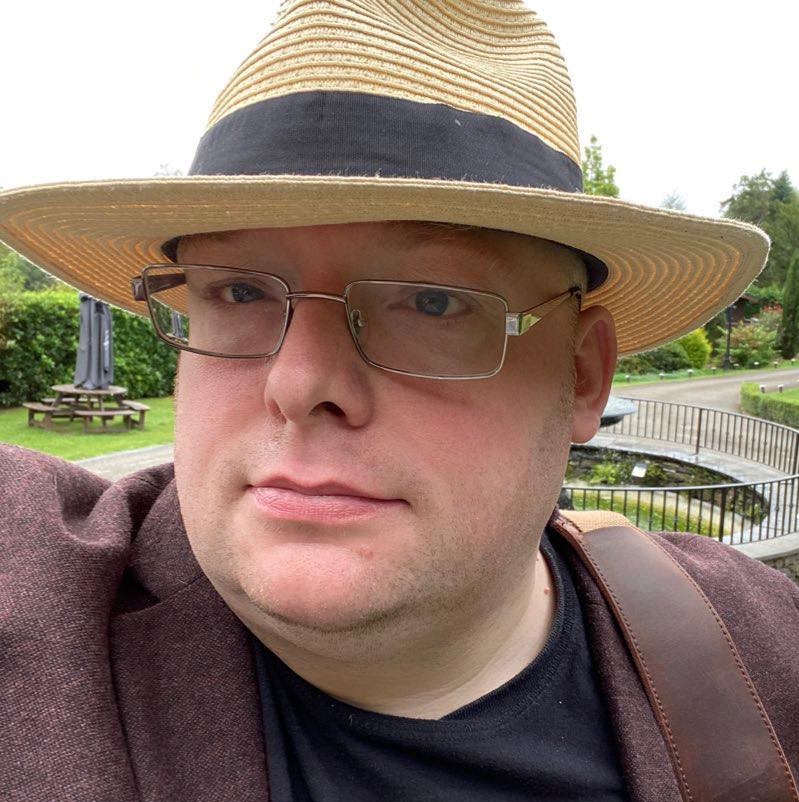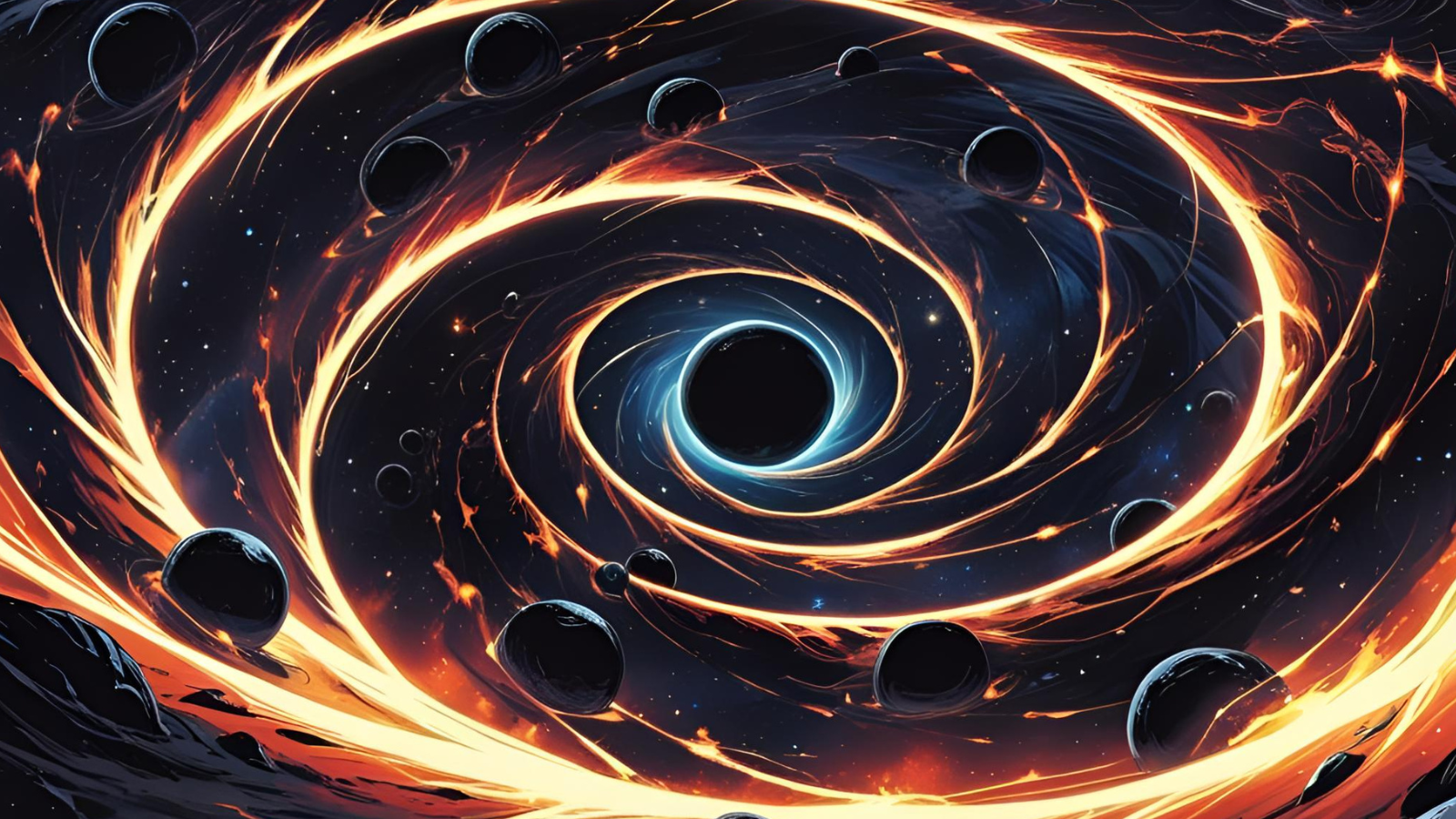Astronomer and solar eclipse expert Jay Pasachoff dies at age 79
Pasachoff witnessed 74 eclipses and worked hard to inspire the next generation of scientists.

Breaking space news, the latest updates on rocket launches, skywatching events and more!
You are now subscribed
Your newsletter sign-up was successful
Want to add more newsletters?

Delivered daily
Daily Newsletter
Breaking space news, the latest updates on rocket launches, skywatching events and more!

Once a month
Watch This Space
Sign up to our monthly entertainment newsletter to keep up with all our coverage of the latest sci-fi and space movies, tv shows, games and books.

Once a week
Night Sky This Week
Discover this week's must-see night sky events, moon phases, and stunning astrophotos. Sign up for our skywatching newsletter and explore the universe with us!

Twice a month
Strange New Words
Space.com's Sci-Fi Reader's Club. Read a sci-fi short story every month and join a virtual community of fellow science fiction fans!
Jay Pasachoff, an astronomer who traveled the globe for over 50 years to witness 74 solar eclipses and was one of the world's leading experts in these sky sights, has died at the age of 79.
Pasachoff, the Field Memorial Professor of Astronomy and Director of the Hopkins Observatory at Williams College, passed away at his home in Williamstown, Massachusetts, on Sunday (Nov. 20). His wife Naomi Pasachoff identified lung cancer as the cause of death.
Pasachoff wrote of his passion for solar eclipses in a New York Times op-ed in 2010: "We are umbraphiles. Having once stood in the umbra, the moon's shadow, during a solar eclipse, we are driven to do so again and again, whenever the moon moves between the Earth and the sun."
Related: Chasing solar eclipses: Q&A with Jay Pasachoff
Completing his doctorate in 1969 with a thesis titled "Fine Structure in the Solar Chromosphere," Pasachoff developed an incredible track record for identifying the best viewing sites for eclipses. This included calculating where the clearest skies would be available for viewing an eclipse's totality phase. Familiarity with weather data also resulted in Pasachoff becoming known for his accurate weather predictions.
Born on July 1, 1943, in New York City, Pasachoff's passion for astronomy began at an early age with trips to the Hayden Planetarium at the American Museum of Natural History. While attending the Bronx High School of Science, Pasachoff began building telescopes.
After graduating in 1959 at age 16, Pasachoff attended Harvard University. There, he took an astronomy course taught by Donald Menzel, one of the first theoretical astronomers and astrophysicists in the U.S. and also an expert in solar eclipses.
Breaking space news, the latest updates on rocket launches, skywatching events and more!
Pasachoff observed his first solar eclipse in 1959, on Nov. 1. In his 2010 New York Times article, the astronomer detailed his description of the event from his log as follows: "Aboard an airplane flying over the Massachusetts coast. As the full moon covered the sun and the sky darkened to black, the sun's corona outlined the moon in white. I was hooked."
Pasachoff earned bachelor's, master's and doctoral degrees from Harvard, in 1963, 1965 and 1969, respectively. Pasachoff conducted postdoctoral research at Harvard College Observatory in 1969, then took a post at the California Institute of Technology before moving to Williams College in 1972.
He spent the next half-century chasing eclipses around the globe, his passion never dwindling. "Each time is like going to the seventh game of the World Series with the score tied in the ninth inning," he told Fox News in 2016.
Solar eclipses did not represent the totality of Pasachoff's work with the sun, however. The astronomer studied the sun's outer atmosphere, known as the corona, which only becomes fully visible during eclipses. (The corona is washed out by light from the layers beneath it and can only be seen when the moon blocks the sun's disk.)
The corona is far hotter than the solar surface, for reasons that scientists are still trying to work out. Alongside Steven Souza and Bryce Babcock, Pasachoff conducted experiments to study the million-degree temperature of the solar corona and discover what is heating the sun's atmosphere to such extreme temperatures.
Pasachoff also studied in great detail the passage of the solar system's innermost planets Mercury and Venus across the face of the sun. In July 2004, for example, Pasachoff and a Williams College team observed the first passage of Venus in front of the sun for 122 years, one of the rarest planetary alignments in the solar system. Pasachoff also witnessed a transit of Mercury across the sun in 2006.
Related: Solar system planets, order and formation: A guide
Arguably Pasachoff's greatest contributions to science, however, were his efforts in public outreach encouraging the general public to observe cosmic events regardless of their skill level.
In 2003, he received the Education Prize of the American Astronomical Society (AAS) for "his eloquent and informative writing of textbooks from junior high through college; for his devotion to teaching generations of students; for sharing with the world the joys of observing eclipses; for his many popular books and articles on astronomy; for his intense advocacy on behalf of science education in various forums; for his willingness to go into educational nooks where no astronomer has gone before."
In 2012, Pasachoff was awarded the Prix-Jules-Janssen from the Société Astronomique de France for his research, teaching, and popularization of astronomy.
In a similar vein, Pasachoff was awarded the 2019 Klumpke-Roberts Award of the Astronomical Society of the Pacific in 2017 for his contributions to the public understanding and appreciation of astronomy.
One Klumpke-Roberts Award nominator wrote about Pasachoff's activities in the buildup to solar eclipses: "It is during these moments that Jay becomes astronomy's cheerleader-in-chief, allowing more and more people to become interested and engaged in the field."
In a 2017 Q&A with Quanta, Pasachoff said: "I think if we get millions or tens of millions of schoolchildren out watching the eclipse — it is so amazing to be out during totality, and it's such a dazzling spectacle, that maybe they could be persuaded to pay more attention to their studies.
"Who knows? In the long term, we may get more scientists out of this, more big discoveries."
Follow us on Twitter @Spacedotcom or on Facebook.

Robert Lea is a science journalist in the U.K. whose articles have been published in Physics World, New Scientist, Astronomy Magazine, All About Space, Newsweek and ZME Science. He also writes about science communication for Elsevier and the European Journal of Physics. Rob holds a bachelor of science degree in physics and astronomy from the U.K.’s Open University. Follow him on Twitter @sciencef1rst.
